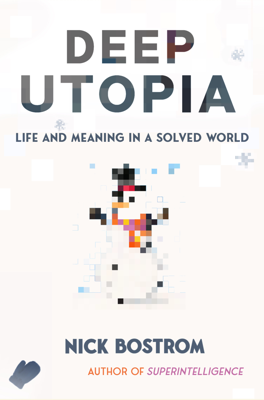Monday
Introduction to the Lecture
Firafix and Tessius discover a lecture by Nick Bostrom, a renowned philosopher, on “The Problem of Utopia” at the Enron Auditorium. They decide to attend after their initial plan to visit the hot springs is postponed by Kelvin, suggesting they go after dinner.
The Lecture Begins
Bostrom discusses the plethora of human suffering and challenges in the world which provide meaningful struggle for both altruists and egoists. Despite the grim outlook, he questions what would give life meaning in a world where every problem has been solved, referencing a future dominated by technological advancements that may eliminate the need for human labor. This leads into a deeper discussion about the implications and existential questions raised by a potential future utopia.
Examination of Purpose and Economic Abundance
Further into the lecture, Bostom discusses Bill Gates's fears of humanity lacking purpose in an over-technological world and echoes similar sentiments from Elon Musk. This elicits interest in the concept of what drives human engagement in a world potentially devoid of traditional challenges. He also delves into economic theories by John Maynard Keynes, predicting a drastic reduction in work hours due to increases in productivity, which hasn't entirely come to pass.
Challenges of Utopia
Bostrom highlights several philosophical and practical challenges that a utopian society might confront, such as managing overwhelming prosperity and the potential boredom that could follow. He questions the shifts in what constitutes meaningful activity when basic needs are effortlessly met.
The Counterargument to Utopian Universal Prosperity
The lecture transitions into a discussion on whether impending superintelligent AI could lead to a condition where humans are left with little to do. Bostom poses whether the imprint of capitalism, embodied in continuous consumption, would allow humans ever to reach a state of contentment that allows for a significant reduction in work.
Discussions and Theoretical Explorations
The idea of a perfect or imperfect world facilitated by automation and AI leads to several theoretical explorations. These include human labor becoming obsolete, the economic implications of such a shift, and whether it could really result in a utopian society or just another form of struggle for status and purpose.
Conclusion of the Lecture
The chapter concludes with a casual interaction where Bostrom gives permission to Firafix and Tessius, who were not registered for the lecture, to continue attending. Plans are made among the friends to continue exploring the philosophical questions raised, resonating deeply with the themes Bostrom discussed about finding purpose and meaning in a potentially post-labor world.
